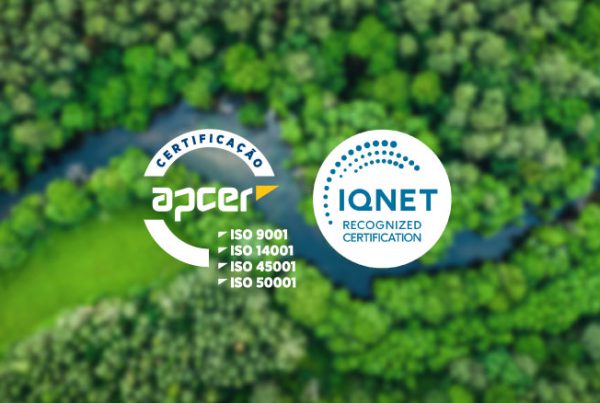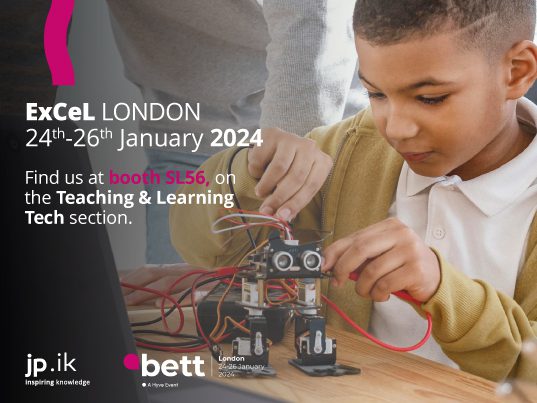Considering the events linked to Education, namely those focusing on pedagogical innovation and the use of technologies in learning, it is common to talk about skills for the 21st century and the need to prepare students for the challenges of this century. Nevertheless, we are quickly moving towards the end of the first quarter of the century and the lack of knowledge or lack of interest regarding this topic is still very present in society, even among those who have responsibilities in the area of ​​Education.
In fact, the speed at which transformation occurs in the world and visible in a kaleidoscope of societal sectors makes it very difficult to foresee the challenges that will be posed to us in the medium and long term, but at the same time, it compels us to act in order to promote a School that really prepares students for all these transformations.

If two decades ago we were told that we would live clinging to devices kept in our pockets and that they would allow us to access any source of information, communicate with people anywhere in the globe and that virtually all professional activities would depend on the use of technology to a large extent, we would possibly find it exaggerated. If we were told about Self-Driving Cars, Artificial Intelligence or the Internet of Things, we would think that these are ideas only possible in the field of science fiction.
Therefore, more than looking to the future, it is important to look at the present and the challenges that we face daily, both personally and professionally. It is interesting to look at the nature of interactions between individuals, at the way we communicate and relate to others today and at the quantity and quality of information that reaches us, but also it is essential to consider the skills necessary to analyze it critically.

When we look at society, the demands of today’s labor market and the demands of a society that was expected to be a Knowledge Society, but that stills function at the information level or when we look at the growing importance that technology assumes in our lives, and especially in the lives of our young people and children, it becomes quite difficult to fit in this reality a School attached to a model that has changed little or nothing in the last 200 years.
How, then, can the School adjust to all this reality, which, most likely, will be quite different from what we will have in 20 years? How to prepare students for a society with professions, characteristics and requirements that we do not even know?
Although the answer to these questions may not be straightforward, nor are there simple solutions to complex problems, an approach to the learning process centered on the implementation and management of Projects may, in a way, answer these questions.
However, the Project Work, when developed in an educational context, has several specificities that we must consider, and for that, it is interesting to define some basic ideas:
- The implementation of a project presupposes the existence of a final product. This product may not be academic (eg a text, a presentation or a play) or it may not even be physical (eg, an event, an action, problem solving)
- The students’ commitment is greater when they own the ideas that give rise to a project; Any project encompasses a vast set of skills and content that covers the diversity of disciplines. It is impossible to do a single discipline project. As in life, the contents of the different subjects, in the projects, are articulated and interlinked, enriching the learning;
- Contrary to what happens in the business world, in which the quality of the final product is decisive in the success of the project, in Education, the most important is the process. The product may not even have the desired quality, but it is during the course that the students made until reaching the final product that the skills and knowledge are acquired;
Rooted in these ideas, we comprehend that what is intended with the implementation of projects in learning is that it is possible to promote creativity by challenging students to create, but also to plan, design and execute a final product. It is intended that students develop critical thinking, leadership and decision-making skills through the collaborative work inherent in this approach. It is intended that they discuss, communicate and be able to adapt to different contexts, colleagues and challenges.
It is sought that students collaborate, interact, solve real problems, that look at the world with a critical eye, because during a project, the world is the limit for creation. And it is during this creative process that it is intended that students use technologies, collecting information, in the preparation of the product itself or in the accompaniment and monitoring of the project.
Technology and projects are both part of our daily lives, so there is nothing like using them together to enrich the learning process and show how technology can be a powerful tool when used for the benefit of the students, while projects embody an approach that really guarantees the acquisition of fundamental life skills.

Rui Lima is a Teacher and the Pedagogical Director at Colégio Monte Flor for 19 years. He has collaborated in several national and international projects in the fields of Pedagogical Innovation, Learning Scenarios, use of Technologies in Education and Collaborative Work.
In the recent years, he has actively participated in initiatives related to Innovative Educational Environments, Programming in the 1st cycle and Transforming the Educational Paradigm.
He is also the author of the work “The School We have and the School We want†and co-author of the book “Scratch and Kodu – Introduction to Programming in Basic Educationâ€.



